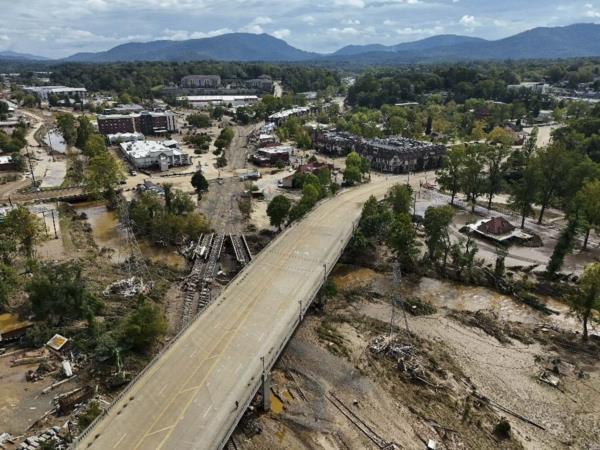
Following the destructive path of Hurricane Helene, the South is left reeling from widespread devastation. The storm, one of the worst in U.S. history, has claimed over 130 lives and left a trail of destruction across six Southeastern states.
In western North Carolina, a crisis is unfolding as residents grapple with washed-out roads, power outages, and communication breakdowns. The death toll in the region continues to rise as emergency workers navigate collapsed infrastructure and severe flooding.
President Joe Biden has announced plans to visit North Carolina to assess the situation firsthand and offer support to affected communities. The federal government has pledged ongoing assistance to the Southeast as recovery efforts get underway.












The impact of the storm is evident in the hard-hit tourism hub of Asheville, where at least 40 people have lost their lives. The scenes of destruction are overwhelming, with splintered houses, crushed cargo containers, and mud-covered highways painting a grim picture of the aftermath.
Residents are facing challenges such as water shortages, power outages, and limited access to essential supplies. Rebuilding efforts are expected to be lengthy and arduous, with officials warning of the extensive damage caused by Hurricane Helene.
Volunteers and aid groups are mobilizing to deliver supplies to affected areas, with a focus on reaching isolated communities in the mountainous regions. The resilience and solidarity of residents are evident as they come together to support one another in the face of adversity.
The storm's impact has been felt across multiple states, with Florida, Georgia, South Carolina, and Virginia also reporting casualties and widespread damage. The federal government, along with FEMA and other agencies, is coordinating relief efforts to assist those in need.
As the region grapples with the aftermath of Hurricane Helene, the focus remains on providing support to affected communities and ensuring a swift and effective recovery process.







